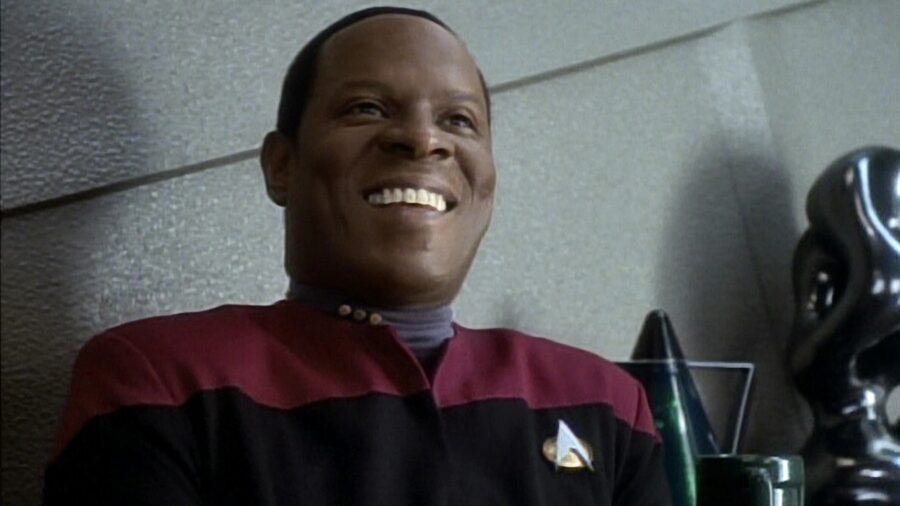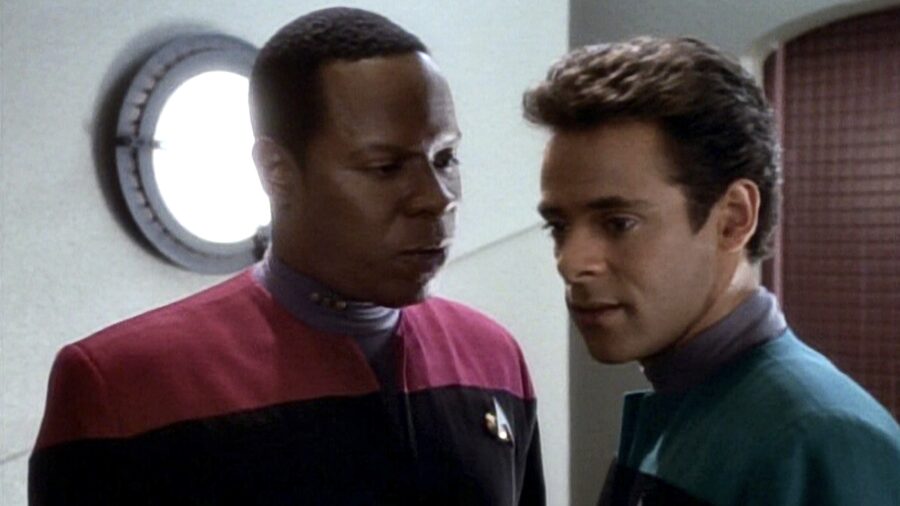By Chris Snellgrove | Published

Star Trek is a dialogue-heavy franchise that has become an integral part of our shared pop culture, and even non-fans are prone to saying things like “He’s dead, Jim” or “Beam me up.” However, one veteran Trek writer believes an overlooked conversation in a largely forgotten episode could be one of the series’ greatest moments. According to prolific writer JM Dillard, a brief conversation between Commander Sisko and Dr. Bashir in Deep Space Nine The episode “The Forsaken” made television history by subverting the racist portrayals of film characters that were common in the 90s.
The conversation

The conversation begins when Bashir visits Sisko’s office to discuss the doctor’s job of escorting troublesome alien ambassadors around the station. In Star Trek – Where no one has been beforeDillard admits that “there’s nothing unusual about this conversation” because “it’s the kind that happens every day in offices around the world.” However, “the difference is that when a black man is in a typical television drama If you talk to a Middle Eastern man, he will almost certainly be talking about drugs, crime, terrorism or violence – and will most likely be portrayed as uneducated, heavily accented, immoral or anti-social – but never on Star Trek.”
To younger fans who were born afterward Deep Space Nine came out, Dillard’s claim may seem a bit exaggerated, but it’s worth remembering that this show was intentionally focused on issues of race from the start. Avery Brooks’ Sisko was the first black lead in a Trek series and remained until the premiere of The Only Star. discovery. Later DS9 episodes dealt very directly with race and racism, including “Far Beyond the Stars”, an episode that revealed that the entire series could be an invention of Benny Russell, a science fiction author who lived in America in 1953 faced extreme (and very ugly) racism.
Such storytelling may seem exaggerated now, but this Deep Space Nine Writers felt it was necessary because Dillard was right: far too many black characters in the ’80s and ’90s were portrayed as dangerous thugs rather than righteous heroes. Brooks, for example, was sympathetically presented in his breakthrough role in Spenser for rentbut his character of Hawk was still a largely ruthless killer who often seemed written more as a racist caricature than a character.

Whether Hawk was a symbolic or groundbreaking character is certainly up for debate, but Brooks himself later noted that his portrayal led many white fans to believe that he was really a gun-toting guy whom the producers recruited “on a street corner somewhere.” He said that some of these fans “speak to me in a vernacular that’s supposed to look like a black language?” Hollywood wasn’t much better than these fans: while DS9 was still on, he starred The big hita big-budget film in which he portrayed (what else?) a violent crime boss.
From the beginning, Deep Space Nine The focus is on the race with its human characters and its aliens. For example, the story of the Cardassians using Bajorans as slave labor on the titular space station is clearly reminiscent of America’s turbulent racial history. And Brooks was never afraid to step in and talk to the writers if he thought they might inadvertently play into racist stereotypes. This is most evident in the series finale: Brooks insisted that Sisko tell his pregnant wife Kasidy Yates that he would return one day because he was uncomfortable with the story about a black man abandoning his wife to raise their child alone was.
However, as Dillard notes, the real magic of Deep Space Nine is that it can tell stories about race, but they don’t always play a big role in the whole. Even at its most preachy, the series never feels like it’s lecturing us to an ’80s-style “very special episode.” Instead, DS9 presents characters of all races with dignity and professionalism, showing us that a better future is about more than just replicators and warp drives. It’s also about leaving our old blockages and prejudices behind us and striving for a better future for everyone, regardless of skin color.
